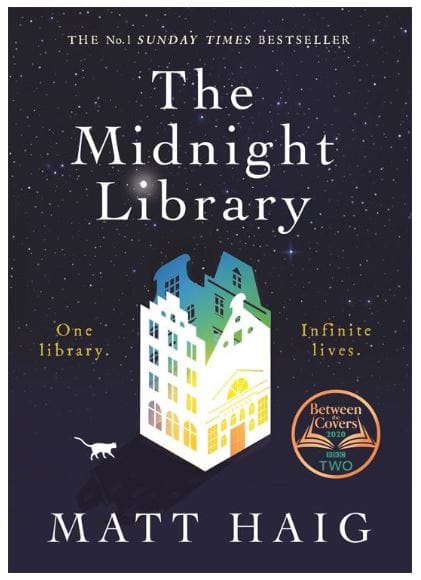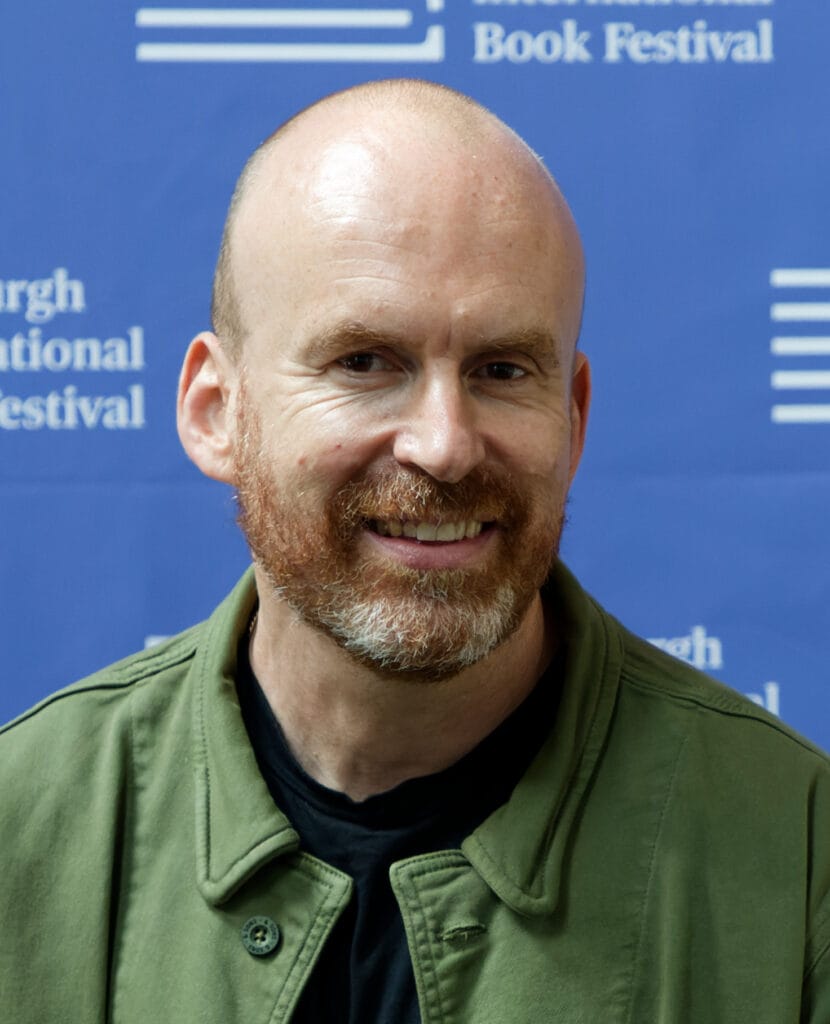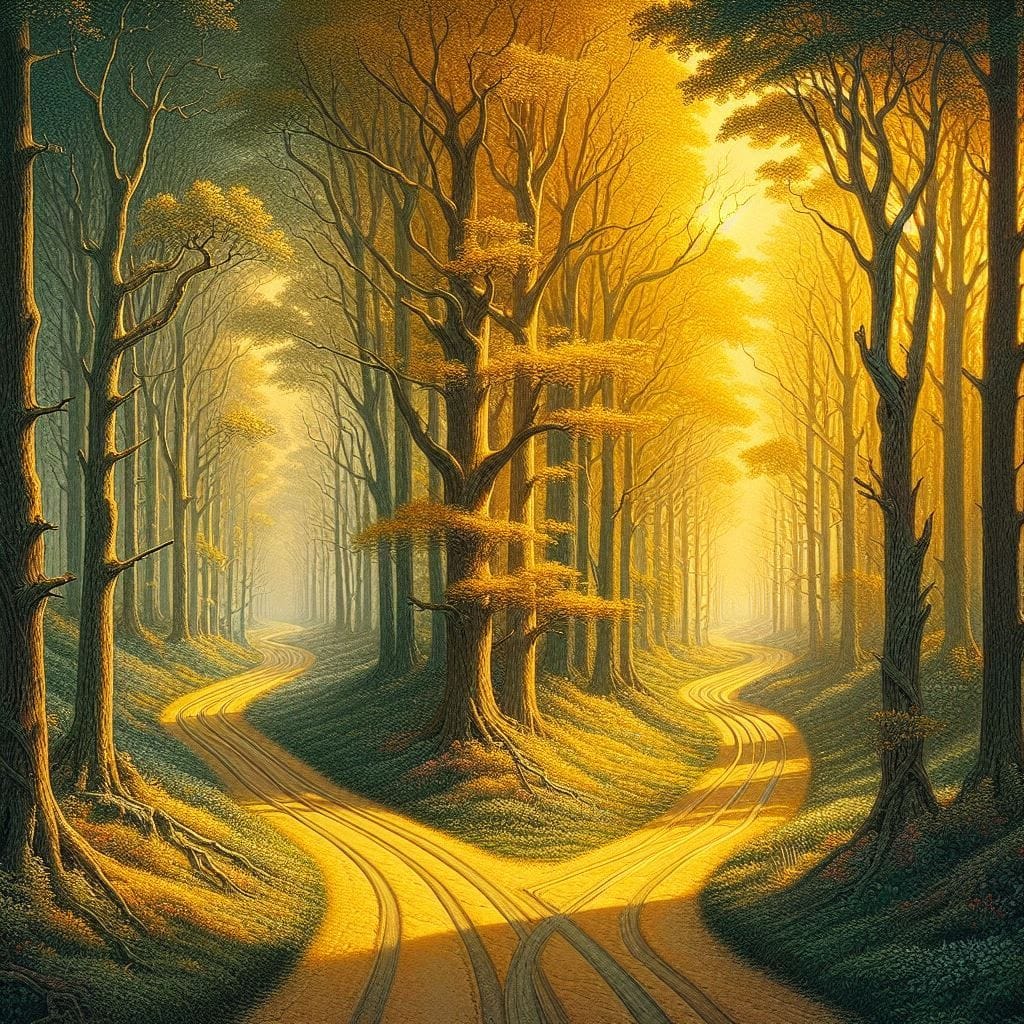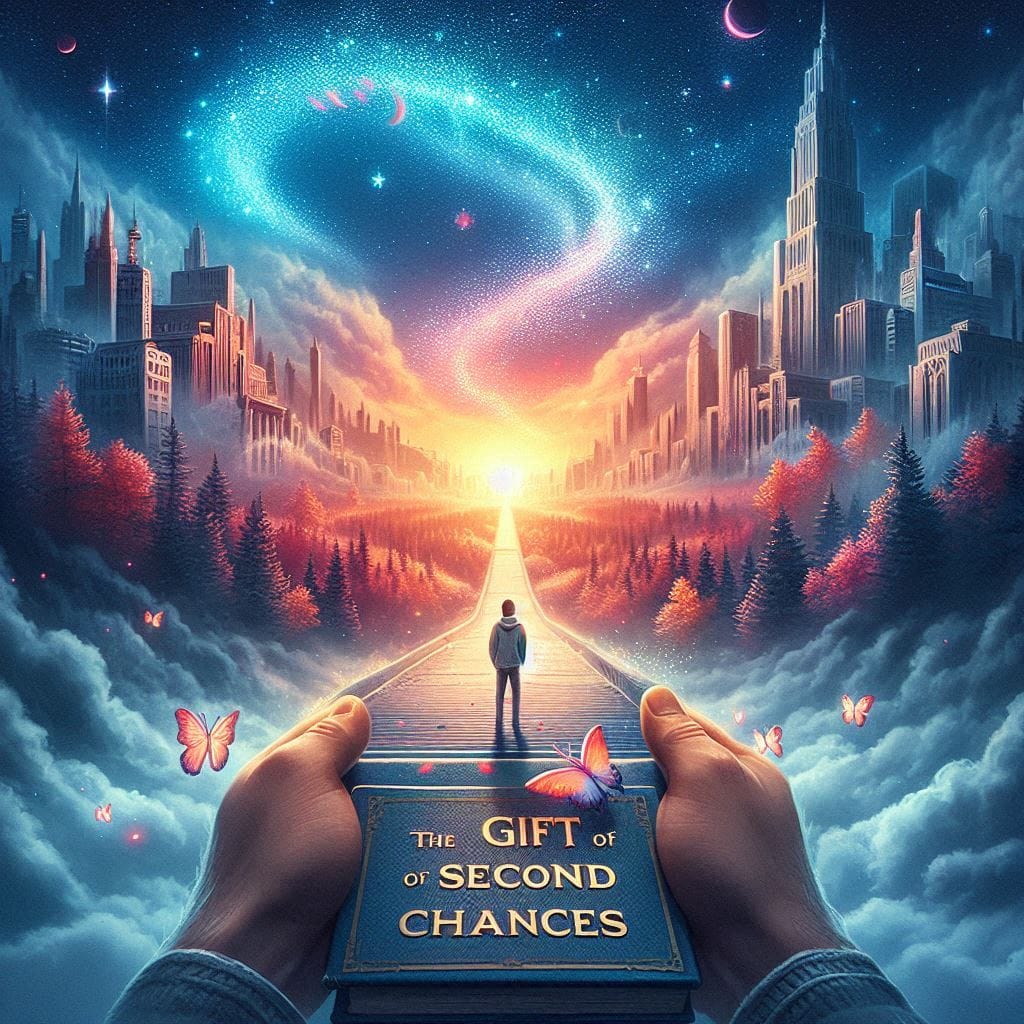What if you could turn back time and erase all your regrets? What if life offered you a second chance to live the way you truly desired?
These are the familiar questions that likely cross everyone’s mind. Time and again, as we reflect on our lives, these thoughts can suddenly appear, reminding us of paths not taken or lives we imagine could have been better than our current reality.
As an avid reader, I’ve been consistently inspired and impacted by numerous books over the years. It’s often uncanny how, whenever I’m grappling with a difficult decision or feeling lost in a life situation, a book will find its way to me, offering a clear perspective on how to navigate the challenges. For me, these aren’t just books; they are mentors, brimming with profound wisdom, guiding me through turbulent times.
This blog post marks a departure from my usual technical posts, delving into a more reflective and personal experience inspired by a recently encountered book that profoundly impacted me. It offered a fresh perspective on my regrets and underscored the importance of embracing the present moment. For those already familiar with mindfulness practices, the themes explored within will likely resonate deeply. However, even for those new to the concept, this book provides a compelling invitation to pause and contemplate their current life situation. The Midnight Library by Matt Haig is the catalyst for this personal exploration, and in the following pages, I will share the insights I gleaned from its narrative.
About the Book and the Author

Matt Haig’s The Midnight Library introduces us to Nora Seed, a woman grappling with profound regret. Between life and death, she finds herself in a library filled with infinite books, each representing a different life she could have lived. Through these journeys, Nora embarks on a poignant exploration of her choices and the elusive question of what truly makes a life worth living.
Matt Haig is a bestselling British author known for his insightful and thought-provoking novels that often explore themes of mental health, identity, and the human condition. His writing is characterized by his empathy, wit, and ability to connect with readers on a deeply personal level. You can discover more about him here.

Content trigger warning: Please be aware that this book addresses sensitive topics, including attempted suicide, suicidal ideation, depression, mentions of self-harm and self-harm scars, panic attacks, and anxiety. Reader discretion is advised.
Beyond Regret: Exploring Nora Seed’s Infinite “What Ifs” (Spoiler Alert)
This book talks about the life and regrets of its protagonist, Nora Seed. Consumed by misery and the weight of her regrets, Nora reaches a point where she attempts to take her own life, only to find herself in the mysterious Midnight Library. This unique place, existing between life and death, offers her an astonishing chance: an infinite number of books, each representing a different path her life could have taken.

With the support of an old friend, Mrs. Elm, her high school librarian, Nora can step into these alternative realities, exploring the consequences of her past decisions in a desperate search for a life free from the burden of “what ifs.” It is these very ‘what ifs’ that the Midnight Library allows her to explore.
At first glance, the Midnight Library presents a tantalizing prospect. Each book offers a glimpse into a reality forged by different decisions. Driven by the hope of rectifying her regrets – would marrying and becoming a landlady have brought her happiness? What about a life as a signed musician, a glaciologist, an Olympic athlete, or even just accepting a simple coffee invitation? – Nora immerses herself in these alternatives.
Yet, Nora’s journey through these “what ifs” reveals a crucial truth: a change in circumstances doesn’t guarantee happiness. Even in lives marked by external success, her underlying feelings of depression remain. This resonated deeply with me, highlighting the complex nature of mental well-being, which isn’t always shielded by achievement or status. Furthermore, Nora’s exploration reveals the intricate web of relationships; gaining closeness with some often means losing others, sometimes permanently. Even the fate of her cherished cat, Voltaire, serves as a poignant reminder that some things are beyond our control.
Eventually, Nora stumbles upon a seemingly perfect life – a loving marriage, a child, and a satisfying career. However, even in this apparent idyll, a sense of being an imposter begins to surface, suggesting that true contentment is more elusive than simply changing external factors.
Having experienced the limitations of these alternative realities, Nora ultimately makes the difficult decision to let go of the seemingly perfect life she found and returns to the fading Midnight Library, where things begin to unravel. This leads her back to her original life, surviving her suicide attempt. Slowly, she starts to rebuild: reconnecting with her brother and taking proactive steps to improve her circumstances.
While some dreams, like becoming an Olympic swimmer, may no longer be attainable, she finds new purpose in developing her business and engaging in volunteering. Through her journey, Nora comes to a profound realization: her original life wasn’t inherently flawed or without hope. What had been holding her back was her inability to release her grip on past regrets and envision a positive way forward.
My Own Midnight Library: Finding Meaning After the Road Not Taken
Robert Frost’s “The Road Not Taken” has long held a special significance for me; its imagery of choosing the less obvious path mirrors my life philosophy. From my school days, I’ve often found that deviating from the norm has led to a richer, more fulfilling personal experience than I could have imagined.

However, in 2018, a moment arrived where I consciously chose the more conventional route, a decision driven by immediate needs that overshadowed my usual adventurous spirit. This choice, made against my better judgment, unknowingly planted the seeds of a quiet discontent that would later blossom into regret and a cascade of “what ifs.”
As time wore on, a familiar restlessness began to stir within me, much like the unease Nora experiences in The Midnight Library. Questions about my life’s direction and my true desires became persistent companions. It was a relief to find that this internal questioning wasn’t unique to me; friends, too, were navigating similar feelings of uncertainty. This shared experience prompted a deeper personal inquiry into the source of this feeling and the path towards resolution.
Then, in 2024, amidst this period of introspection, I serendipitously discovered The Midnight Library in a bookstore. The following quote immediately struck a chord and compelled me to purchase the book:
“Between life and death there is a library,’ she said. ‘And within that library, the shelves go on forever. Every book provides a chance to try another life you could have lived. To see how things would be if you had made other choices . . . Would you have done anything different if you had the chance to undo your regrets?“
It felt like a familiar pattern: just as Frost’s poem had once resonated with my core beliefs, this book appeared at a crucial moment of personal struggle. I devoured its pages, and by the time I reached the end, my understanding of my own life had shifted dramatically.
From Lost Dreams to New Paths: The Gift of Second Chances
After finishing the book, I engaged in deep introspection to understand the root cause of my regrets post-2018. Before that, I had largely achieved my early aspirations. It became clear that the core of my regret stemmed from a lost academic dream. From childhood, I had envisioned myself as a scientist deeply involved in groundbreaking research and teaching at a university. However, by the time I completed my doctorate in 2017, the minimum criteria for securing an academic position had drastically changed since I began my studies in 2012. The academic job market had become highly competitive, with minimal opportunities requiring more than just an impressive resume. The applications I submitted were rejected due to a perceived lack of experience.
Following a careful assessment of the prevailing conditions, I decided to transition into the industry to sustain myself, aiming to become a scientist, if not a full professor. I received two offers: a promising industry position in an exciting field with a substantial salary and a post-doctoral position with half the pay. Had I adhered to my conviction of taking the road less traveled, I would have chosen the industry role. However, I decided to give securing that elusive academic role one last attempt. Consequently, I prioritized comfort over potential growth, a decision that proved far more soul-crushing than I had anticipated, thus initiating my first significant regret: What if I had taken that industry position?

By the time I completed my post-doctoral role in 2021, the COVID-19 pandemic had struck, leaving me, like countless others, facing uncertainty. Furthermore, I had come to the firm realization that I wanted to pursue a career in the industry, which offered a broader range of options compared to the stagnant environment of academia.
By mid-2021, I was fortunate to secure an industry position, which I embraced wholeheartedly, determined to prove to myself anew. The mindset required was entirely different from the decade I had spent in academia, and the learning curve was steep. My efforts were richly rewarded, for which I am grateful. However, despite achieving significant milestones, I felt a sense of emptiness that I couldn’t quite identify until I read The Midnight Library.
It turned out that leaving academia was more than just a career change; it represented a loss of identity, a sentiment echoed by many PhD graduates, as I later understood better after reading “Doctoring” by Chris Cornthwaite. Consequently, I hadn’t properly grieved my lost dream, and it had settled as a regret, casting a shadow over my current life. This feeling resonated deeply with the following passages from the book:
“It is easy to mourn the lives we aren’t living. Easy to wish we’d developed other talents or said yes to different offers. Easy to wish we’d worked harder, loved better, handled our finances more astutely, been more popular, stayed in the band, gone to Australia, said yes to the coffee or done more bloody yoga.”
Ultimately, this was precisely what I was doing, as poignantly expressed in the book:
“But it is not lives we regret not living that are the real problem. It is the regret itself. It’s the regret that makes us shrivel and wither and feel like our own and other people’s worst enemy.
We can’t tell if any of those other versions would have been better or worse. Those lives are happening, it is true, but you are happening as well, and that is the happening we have to focus on.”
Therefore, the instant when I experienced this “Aha!” moment, I began to appreciate my life for what it is, rather than dwelling on what it could have been. Interestingly, when life presented me with another proverbial fork in the road, I adhered to my conviction of taking the road less traveled and decided to pursue a career path that offered greater personal satisfaction. It seems that life does indeed offer second chances, which can be even more fulfilling if we are open to recognizing them.
Personal Reflections
The Midnight Library proved to be a transformative reading experience, offering a fresh lens through which to view my life, shifting it from feeling stale and monotonous to one brimming with newfound potential. The following are some key perspectives I gained from its pages:
Shifting Perspective: Appreciating What We Have
We often tend to measure our lives by what we lack rather than appreciating the abundance we possess. More often than not, if we take a moment to step back and truly observe our circumstances, we discover a wealth of blessings outweighing the perceived curses. It is often our perspective that obscures the positive aspects of our current situation, a truth powerfully captured by the following quote:
“It is quite a revelation to discover that the place you wanted to escape to is the exact same place you escaped from. That the prison wasn’t the place, but the perspective.”
Recognizing the Value of the Overlooked
We frequently overlook the things we take for granted, yet these are often the most vital aspects of our lives, only truly valued when they begin to diminish. Personal health, both mental and physical, and the meaningful relationships we cultivate are prime examples. We tend to assume their constant presence, yet their true significance is often realized only when we find ourselves in a difficult place, uncertain of how we arrived there.
The Strength of Support Systems
Throughout the various peaks and valleys of my journey over the past few years, my personal support systems have been instrumental in helping me navigate challenges with minimal lasting negative impact. I am fortunate to have a supportive family and a loving wife who have stood steadfastly by my side through both good times and bad. Nora mirrors this crucial realization at the end of her story by reconnecting with her brother and her best friend, highlighting the importance of these bonds.
Embracing Self-Compassion and Acceptance
As conscientious individuals, we naturally extend empathy and kindness towards others. However, we often neglect to offer that same compassion to ourselves. In my own experience, this lack of self-kindness is a significant root cause of regrets and unhappiness in our lives. Learning to embrace and accept ourselves fully, with both our strengths and imperfections, is a vital step towards inner peace and contentment. Matt Haig beautifully captures this sentiment in the following quote:
“If you aim to be something you are not, you will always fail. Aim to be you. Aim to look and act and think like you. Aim to be the truest version of you. Embrace that you-ness. Endorse it. Love it. Work hard at it. And don’t give a second thought when people mock it or ridicule it. Most gossip is envy in disguise.”
This quote powerfully reinforces the importance of authenticity and self-acceptance in navigating life and mitigating regret.
Conclusions
Reading The Midnight Library was more than just an engaging literary experience; it felt like looking into a mirror reflecting my own “what ifs” and the weight they carried. While the book offers Nora infinite possibilities, her ultimate contentment lies in accepting and finding value in her original existence. My deep dive into my post-2018 regrets, particularly the path not taken in academia, found an unexpected echo in Nora’s search for a perfect existence.
Ultimately, the book illuminated a crucial truth: the real prison isn’t the life we have but the regret that blinds us to its potential. Just as Nora discovered the value in the unique tapestry of her original life, I, too, recognized the inherent worth in my journey, including the detours and perceived missteps. Perhaps life isn’t about erasing regrets but about learning from them and having the courage to choose a fulfilling path forward, even if it’s different from the one we initially envisioned. Ultimately, the book’s simple yet profound message resonates deeply:
“The only way to learn is to live.”
